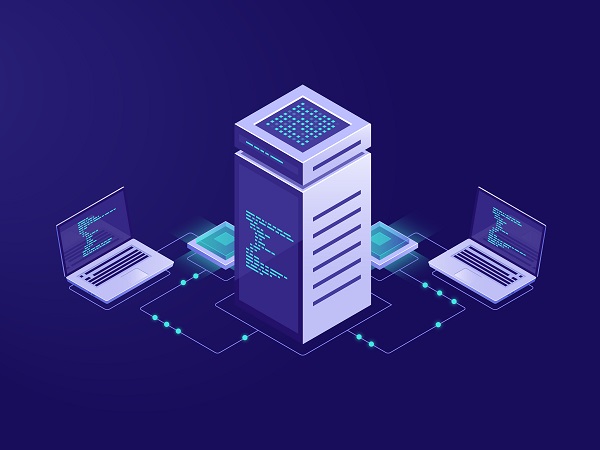Not that long ago, the idea that data would come to play a central role in everything from business and government operations to individuals’ everyday lives seemed fantastical. Today, however, data’s behind almost everything we see, hear, and do in the world. And that’s creating challenges that nobody expected.
Most of those challenges stem from a complete lack of standardization of the methods organizations use to collect, store, and use data. That’s why the passage of any significant data regulations – like the GDPR – has the effect of throwing multiple industries into years of chaos. And even after getting into compliance, remaining there becomes a perpetual struggle.
Oddly, though, there’s been a potential solution to big data’s most thorny issues hiding in plain sight all along. It can be found in the blockchain, which is the underlying technology that powers the trillion-dollar cryptocurrency industry. And yet the big data industry still seems reluctant to embrace blockchain, despite it checking many of the boxes that indicate how useful it might be.
To elaborate, here’s a look at some of the common big data problems that blockchain is perfectly suited to solve, and some thoughts on what could be driving the industry’s reluctance to embrace it.
Big Data’s Five Major Hurdles
In general, the big data industry faces five major hurdles that make it difficult to manage and apply in the real world. They are:
- Safeguarding data authenticity – making sure that collected data is never falsified, manipulated, or otherwise altered after collection.
- Maintaining data privacy – with multiple regulations now governing the collection and use of data on a large scale, organizations have a legal and ethical responsibility to safeguard the privacy of the people connected to the data they store.
- Assuring data accuracy – analytics teams can only draw valid conclusions using accurate data, and that’s why big data teams spend so much time and money on data cleaning and standardization processes. But keeping it that way is another matter.
- Keeping data secure – preventing unauthorized access to data is not only an operational necessity but a legal requirement. And with the number of data breaches and their severity increasing each year, it’s getting harder to do.
- Enabling real-time analysis – the holy grail of big data is to make it possible for data scientists to analyze data in real-time. But enabling that at scale with conventional databases is difficult, due to the immense management challenges that come from having to track simultaneous changes made by multiple users.
For years, organizations have struggled with these five hurdles in their big data operations. And while they have found some solutions for them, there’s been no panacea – making data systems more complex, expensive, and difficult to maintain.
Big Data’s Weaknesses are Blockchain’s Strengths
Blockchain, which is a novel encrypted decentralized database system, is uniquely well suited to solving big data’s most vexing issues. The first is the matter of safeguarding authenticity. As a distributed data storage system, it has the type of data redundancy and providence checks that make unauthorized alterations close to impossible. In practice, every data change has to be validated by some or all participating nodes. That makes spotting manipulation simple and stopping it just as easy. In most blockchain variants, the only way to make unchecked changes would be to control the majority of nodes in the system, which is all but impossible to achieve in a private deployment. It also makes it trivial to preserve data accuracy once a prepared data set is written to the blockchain.
On both the privacy and security fronts, blockchain makes it far easier for big data operations to stay in compliance. They can, for example, configure their blockchain deployment to use homomorphic encryption. That would allow data scientists to work without ever having to decrypt the data, keeping it both safe from prying eyes and anonymous from the user’s perspective.
And they could also make use of federated machine learning in their analytics processes, which would allow each node to work with only the data it had access to. In such a configuration, the ML model would work with an abstract of each data chunk’s characteristics, thus preserving the privacy of the underlying data and preventing anyone from gathering a complete data set for later exploitation.
What’s Holding Back Adoption
Even though blockchain and big data look like they’d make an excellent match, businesses and other data-rich organizations don’t appear to be in a rush to adopt it. Part of the reason for that is the costs involved. Blockchain, for all of its benefits, isn’t a very efficient system. It’s resource-intensive and doesn’t always scale well. And that was especially true in blockchain’s earliest iterations when most of the big data industry first looked at applying the technology. And even though more recent blockchain innovations have made big strides to remedy those issues, it’s a reputation the technology can’t seem to shake.
And that’s not its only reputational challenge. There’s also the reality that cryptocurrencies and blockchain technology are inextricably linked in the public consciousness. For that reason, organizations tend to see blockchain adoption as a form of cryptocurrency investment, even though that’s not the case. Blockchain, in itself, is nothing but the infrastructure that underpins the crypto and DeFi industries – and while they couldn’t exist without it, blockchain can stand on its own.
The Bottom Line
At the end of the day, blockchain and big data seem to be a perfect match that’s stuck in neutral. Organizations won’t make the investments needed to apply its unique features to their data operations, due to outdated perceptions of the technology’s cost, performance, and reputation. And that’s a major loss for the big data industry.
After over a decade of innovation, blockchain is more than worth a second look from those in the big data community. All it will take is an open mind and a willingness to drop any preconceived notions tied to the technology’s previous shortcomings. And if that happens, there should be nothing stopping blockchain from becoming a primary solution to some of big data’s most long standing issues. The only question that remains is who’s going to make the first move.
















